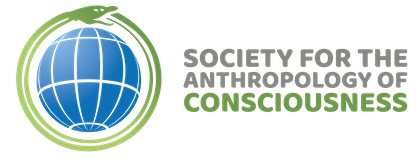Anthropology of Consciousness
Forthcoming Issues
The special issue will include articles on current psychedelic science and its relationship to other forms of practices and knowledge. We aim to reflect on how psychedelics are once again being used in scientific research, in clinical and therapeutic applications, and legalized, as well as the effects of this process on different social groups, including marginalized populations. The issue will include articles from researchers in the Global South as well as the Global North.
Hauntology, coined by Jacques Derrida in Specters of Marx, refers to the enduring residues of the past that continue to exert influence on the present (Derrida, 1994). Within anthropology, hauntology prompts an examination of how both literal and metaphorical ghosts manifest in contemporary societies, cultures, and identities. Hauntology ethnography allows researchers to reveal how haunting phenomena are perceived, negotiated, and contested in everyday life.
September 2026
Ariel Fuenzalida (afuenzal@uottawa.ca)
Plant pollen and fungi spores stir in the air with word and elemental dust we inhale. We can never tell when such a mixture suddenly overwhelms, takes over, lets something new emerge that perdures. We are interested in levelling the playing fields of currently reified “psychedelics” by exploring how a breath of chaos is accessible by other paths. As such we wish to retrieve the ancient Greek meaning of “psyche” which refers to life or its breath, thus expanding this sort of ode to “psychedelia” in as broad a sense as possible which brings it closer to something we might rather call “cosmodelia”. We want to explore breath and chaos as ways of tapping into what is yet to come to compose foreseeable futures.
“Psychedelic renaissance” refers to recent increases in research and clinical applications of psychedelic medicines. Anthropology’s praxis in psychedelics began with James Mooney’s central role in establishing the Native American Church. Anthropology revealed the importance of psychedelics to healing, spirituality and community. Anthropology and psychedelic science challenge hierarchies of state power, biomedicine, the pharmaceutical industry, and religious colonial ideologies that oppress indigenous traditions. Anthropology has roles in guiding the ongoing psychedelic renaissance in ways that protect rights, respect cultural patrimony, engage reciprocity, and integrate traditional wisdom.
